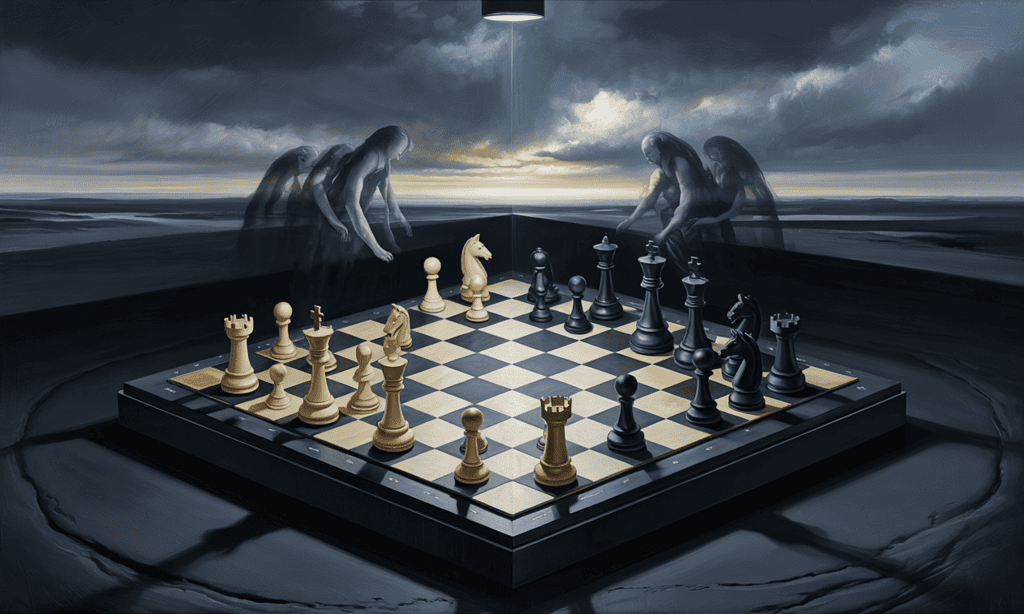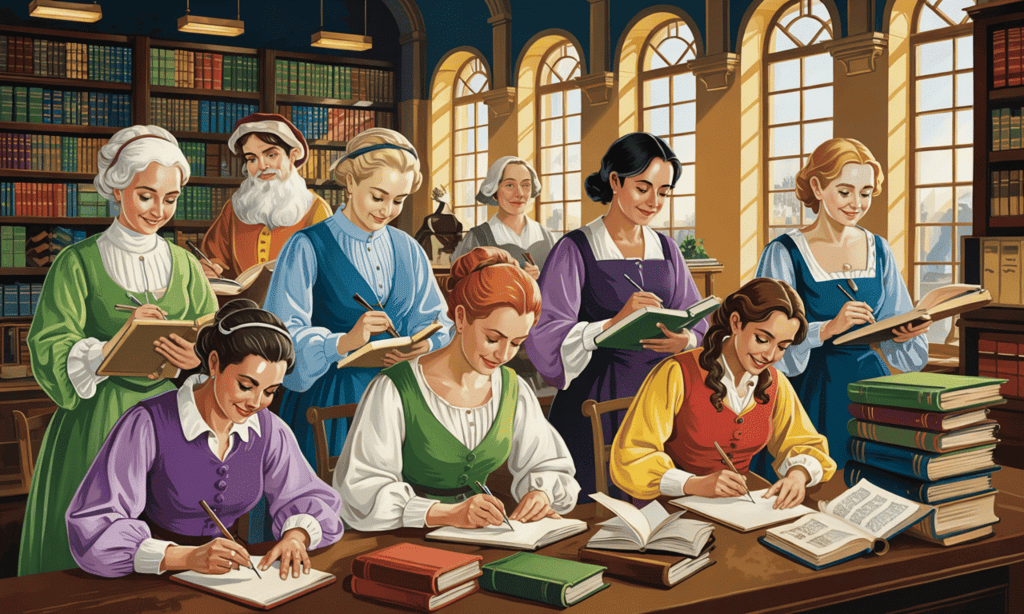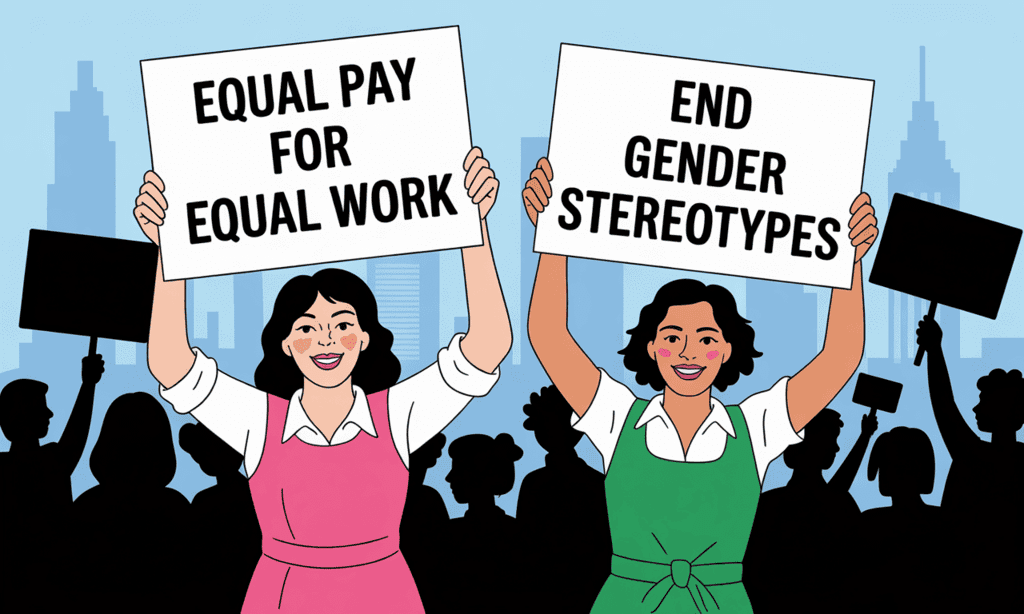Cultural Studies - 1 Chapter Notes | Crash Course for UGC NET English Literature PDF Download
| Table of contents |

|
| Introduction |

|
| Films and Advertisements |

|
| Key Theorists in Cultural Studies |

|
| Publications |

|
| Walter Benjamin |

|
| Cultural Studies |

|
| Power |

|
| Feminism |

|
| The Second Wave of Feminism |

|
Introduction
This unit offers a brief overview of cultural studies, postcolonialism, and feminism. The section on cultural studies introduces students to key figures such as Raymond Williams, Stuart Hall, and Antonio Gramsci, along with important concepts like ideology, power, and hegemony. It also touches on the Frankfurt School and thinkers like Walter Benjamin. The unit then moves on to postcolonial theory, discussing its background and major thinkers like Frantz Fanon, Edward Said, Gayatri Chakravorty Spivak, and Homi Bhabha. Finally, the unit explores feminism, starting with Mary Wollstonecraft and concluding with Julia Kristeva, highlighting the significant works and ideas of various feminists. Cultural Power Dynamics
Cultural Power Dynamics
Cultural Studies: An Overview
- Cultural studies is the study of how art and culture impact people’s lives and thoughts.
- It looks at how literature and art reflect and influence different social and political interests, shaping our understanding of the world.
- Every piece of art, whether it’s an advertisement, book, newspaper, music, or magazine, carries some kind of economic or political message.
- Cultural studies aim to uncover the social ideas behind art, literature, and entertainment, showing that they are not neutral.
- Entertainment and art are often used to promote specific political views and serve the interests of those in power.
- For example, television constantly pushes what the capitalist class wants us to buy, shaping our view of society within a certain ideological framework.
- Shows, ads, and popular magazines are important areas of focus in cultural criticism.
- Through art and culture, specific ideas are spread and enforced on the public.
- Films and television create ready-made images of people, defining roles like man, woman, hero, and villain, along with traits like beauty, ugliness, good, and evil.
- This shapes the way people see themselves and their roles in society.
Films and Advertisements
Films and advertisements have played a significant role in reinforcing and promoting patriarchy, leading to the stereotyping and essentialising of women's roles in society and politics. Thinkers such as Richard Hoggart, Raymond Williams, E. P. Thompson, Walter Benjamin, Antonio Gramsci, and John Fiske have critically examined culture from a Marxist perspective. In his book Television Culture , John Fiske proposed a semiotic framework for analysing television programmes. Cultural Critique
Cultural Critique
Frankfurt School of Thought
- The Frankfurt School of Thought, founded in 1923 in Germany, comprised philosophers, sociologists, and Marxist thinkers who were critical of the prevailing economic and social systems, including capitalism and Marxist-Leninism.
- This group, including figures like Erich Fromm, Max Horkheimer, Walter Benjamin, and Herbert Marcuse, applied Marxism to an interdisciplinary social theory that combined culture with Marxist principles.
- They argued that technology facilitates the dissemination of cultural content that serves the interests of the capitalist class, content that is economically and ideologically motivated rather than innocent.
- This cultural content plays a crucial role in shaping human understanding and creating stereotypical images of various social categories, including gender and morality.
- The Frankfurt School believed that people passively accept this cultural content, leading to political passivity and intellectual inactivity, a process they felt Marx had overlooked in his analysis of capitalism.
- They contended that this oversight was a key reason for the lack of revolutionary change.
- Known for developing critical theories, the Frankfurt School popularised the dialectical method of learning by examining societal contradictions.
 Cultural Critique
Cultural Critique
Key Theorists in Cultural Studies
Raymond Williams (1921–1988)
- Raymond Williams was a significant thinker and critic known for his work in Marxist literary theory. However, he preferred to identify as a 'Socialist' or 'Communist' rather than a 'Marxist.' His contributions are aligned with Marxist traditions, particularly through his concept of 'cultural materialism.'
- Cultural materialism examines the role of culture in shaping social relationships and ideas, viewing culture as a means of production. This perspective extends traditional Marxism's class analysis.
- Some of Raymond Williams' key texts include:
- Culture and Society
- The Long Revolution
- Communication
- Television: Technology and Cultural Form
- Towards 2000
- Marxism and Literature
Publications
- Language and Literature (1981)
- The Sociology of Culture (1982)
- Writing in Society (1983)
- Towards 2000 (1983)
- The Year 2000 (1983)
- Loyalties (1985)
- People of the Black Mountains (1989)
- Marx on Culture (2005)
About Stuart Hall
- Stuart Hall was a British-Jamaican Marxist sociologist, professor, and theorist.
- He was a founding member of the ‘New Left Review’ in 1960, an academic journal in Britain that focused on issues of economy, politics, and culture.
- Hall played a significant role in the development of the ‘Black Art Movement’.
- Some of his early works include:
- The Popular Arts
- Situating Marx: Evaluations and Departures
- Encoding and Decoding in Television Discourse
- Policing the Crisis
- Resistance Through Rituals
Articles by Stuart Hall
- Situating Marx: Evaluations and Departures (1972)
- Encoding and Decoding in the Television Discourse (1973)
- Resistance through Rituals (1975)
- Policing the Crisis (1978)
- The Hard Road to Renewal (1988)
- Formation of Modernity (1992)
- Question of Cultural Identity (1996)
- Cultural Representation and Signifying Practices (1997)
- Familiar Stranger: A Life between the Two Islands (2017) (A Memoir, Posthumously published)
 Cultural Interpretation
Cultural Interpretation
Walter Benjamin
- Walter Benjamin was a critic of culture and a prominent writer of essays from Germany.
- He had connections with the Frankfurt School, a group of scholars known for their critical approach to society and culture.
- Benjamin is most famous for his essay titled ‘The Work of Art in the Age of Mechanical Reproduction’, where he explores the impact of mass-produced art on politics and society.
Cultural Studies
The Task of the Translator (1923)
The Work of Art in the Age of Mechanical Reproduction (1935)
Theses on the Philosophy of History (1940) Cultural Power Shift
Cultural Power Shift
Author as Producer
Antonio Gramsci (1891–1937)
- Hegemony
- Power and Ideology
- Organic and Traditional Intellectuals
Hegemony
- Hegemony, a concept developed by Antonio Gramsci, refers to the way in which a dominant group maintains its power not just through force, but by winning the consent of the governed. This involves shaping the cultural and ideological landscape so that the values and beliefs of the ruling class become the accepted norms.
- Gramsci argued that all people are intellectuals in some way, but only a few have the role of intellectuals in society. He divided intellectuals into traditional intellectuals, who are aligned with the ruling class, and organic intellectuals, who emerge from and represent the interests of the subordinate classes.
Power and Ideology
- Power, in the context of Gramsci's theory, is not just about political or economic control, but also about the ability to shape ideologies and cultural practices. Ideology plays a crucial role in how power is exercised and maintained, as it influences how people perceive their reality and their place within it.
- Traditional intellectuals are those who have been historically associated with the ruling class, such as academics, clergy, and certain professionals, who help perpetuate the dominant ideology. Organic intellectuals, on the other hand, arise from the working class or other subordinate groups and help articulate their experiences, struggles, and aspirations, providing an alternative to the dominant narrative.
Ideology
- Ideology is a system of beliefs, values, and ideas that shapes how individuals understand and interact with the world. For Karl Marx, ideology is about the production of ideas, which includes everything people think, say, and imagine. It encompasses various aspects of society, such as politics, laws, morality, religion, and metaphysics.
- Marx argues that ideology functions as the superstructure of society, influencing how people perceive concepts like right and wrong, truth and falsehood, and reality and deception. Ideology plays a crucial role in shaping individuals' understanding of these fundamental concepts.
- Ideology is not just a set of beliefs; it is a powerful tool that affects how people critique literature, art, and culture. It helps individuals make sense of complex social realities and can be used to challenge or reinforce existing power structures.
Power
- Throughout human history, the central theme has been the struggle for power.
- This power is often held by the capitalist or upper class.
- The dominant groups maintain their control through various means, including:
- Knowledge
- Religion
- Language
- Patriarchy
- Educational institutions
- Repressive forces such as prisons, the military, and police.
- Every form of knowledge is shaped and controlled by these dominant forces.
- The powerful groups oversee the socioeconomic and socio-political systems.
- Hegemony and ideology are tools used by the state to maintain the power structure.
- The upper class relies on ideology, hegemony, and at times, violence to control the working class.
- Power is manifested not just in government but also in institutions like the church, which shapes individual behavior.
- French philosopher Michel Foucault suggests that knowledge is significantly influenced by powerful entities and dominant classes.
Hegemony
- Hegemony, as per the Oxford dictionary, refers to "the control by one country, organisation, etc., over other countries within a specific group."
- The concept of cultural hegemony, which describes how the ruling class dominates the masses by manipulating and controlling their culture, was initially developed by Antonio Gramsci and later expanded by other Marxist and postcolonial theorists.
Feminism
Feminism is often viewed as a struggle for equality against an unjust social system that marginalizes and controls women due to their physical differences from men. In certain cultural and historical contexts, the phallus is seen as a symbol of power, while women are portrayed as weak, passive, and lacking. The feminist movement is closely associated with the fight for voting and legal rights in the late 19th and early 20th centuries. Feminism can be broadly categorized into two main groups: French feminists and Anglo-American feminists.

Understanding Feminism
- Feminism opposes gender disharmony, inequality, and hierarchies that perceive women as inferior to men.
- The publication of Mary Wollstonecraft’s A Vindication of the Rights of Woman marks the beginning of feminist theory, a significant text in feminist literature.
- Virginia Woolf later addressed the discrimination faced by women, which restricts their independence and access to resources such as libraries.
- Woolf raised an important question: ‘Why should men drink wine and women water?’ This question highlights the discrimination that women have endured throughout history.
Female Writers and Pseudonyms
- Many women writers opted to use male names or write under pseudonyms for two primary reasons:
- They wanted their work to be published.
- They aimed to avoid being judged based on their gender.
The Second Wave of Feminism
- During the second wave of feminism, there was a strong emphasis on how women are portrayed in different types of media, such as literature and art.
Marxist-Feminism
- Marxist-feminism looks at the economic situation of women and critiques their oppression using a Marxist framework.
- This perspective investigates how women are portrayed negatively in various forms of media including television, art, literature, and advertisements.
- It also brings attention to the economic and physical exploitation of women.
 Cultural Critique
Cultural Critique
Women's Economic Position
- Feminists often raise questions about the economic status of women in both their domestic and professional settings.
- They contend that a major factor contributing to women's oppression is the exploitation of their labor.
- This labor is typically unacknowledged and unpaid, being seen as a woman's responsibility towards her family.
|
127 videos|64 docs
|
FAQs on Cultural Studies - 1 Chapter Notes - Crash Course for UGC NET English Literature
| 1. Who are the key figures in Cultural Studies and what are their contributions? |  |
| 2. How did Raymond Williams' ideas shape Cultural Studies? |  |
| 3. What role does feminism play in Cultural Studies? |  |
| 4. How does Antonio Gramsci's concept of cultural hegemony apply to modern society? |  |
| 5. What is the significance of Walter Benjamin's work in Cultural Studies? |  |















